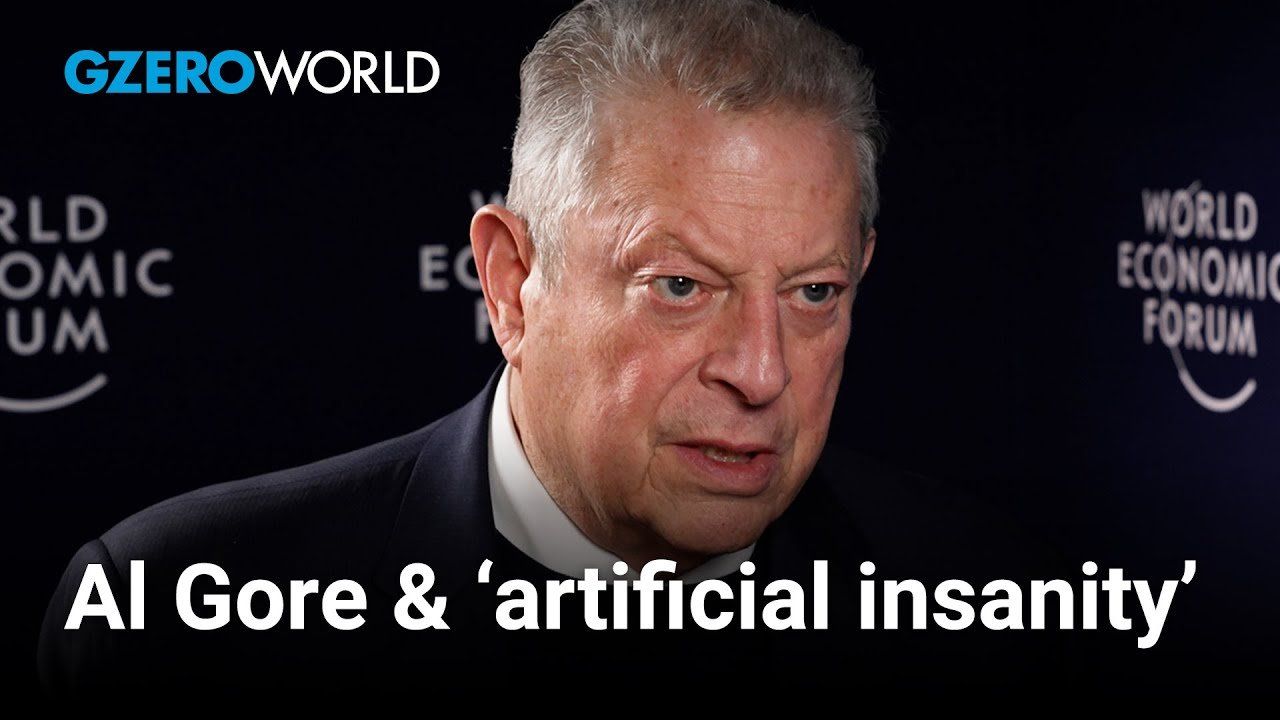
It is not a partisan statement to acknowledge that the future of American democracy is very much an open question. In 2020, we witnessed the first non-peaceful transition of power from one US presidential administration to another for the first time in modern history. And if past is prelude, 2024 could be a good deal worse. So what accounts for the imperiled state of democracy? Misinformation, coupled with technology, is a big part, says former vice president and Nobel laureate Al Gore in an upcoming episode of GZERO World.
Ian Bremmer caught up with Gore on the sidelines of the 2024 World Economic Forum in Davos, Switzerland to talk about the upcoming US election and, as you might expect, the existential threats posed by climate change. In this clip, Gore talks about today's witches' brew of new technologies, social media, and a lack of shared trust amongst Americans.
"These algorithms that suck people down proverbial rabbit holes, they're more like the pitcher plants with slippery sides and at the bottom of the rabbit hole, that's where the echo chamber is. And people who dwell long enough in the echo chamber become vulnerable to a new kind of AI. Not artificial intelligence, but artificial insanity."
Catch Al Gore's full conversation with Ian Bremmer in next week's episode of GZERO World at gzeromedia.com/gzeroworld or on US public television. Check local listings.
- Oil, gas, gold for (pseudo-) democracy? ›
- What does democracy look like in Modi's India? ›
- Ian Bremmer: How AI may destroy democracy ›
- Divided we fall: Democracy at risk in the US ›
- Al Gore on US elections & climate change - GZERO Media ›
- When AI makes mistakes, who can be held responsible? - GZERO Media ›
- 2024 is the ‘Voldemort’ of election years, says Ian Bremmer - GZERO Media ›
- Al Gore's take on American democracy, climate action, and "artificial insanity" - GZERO Media ›